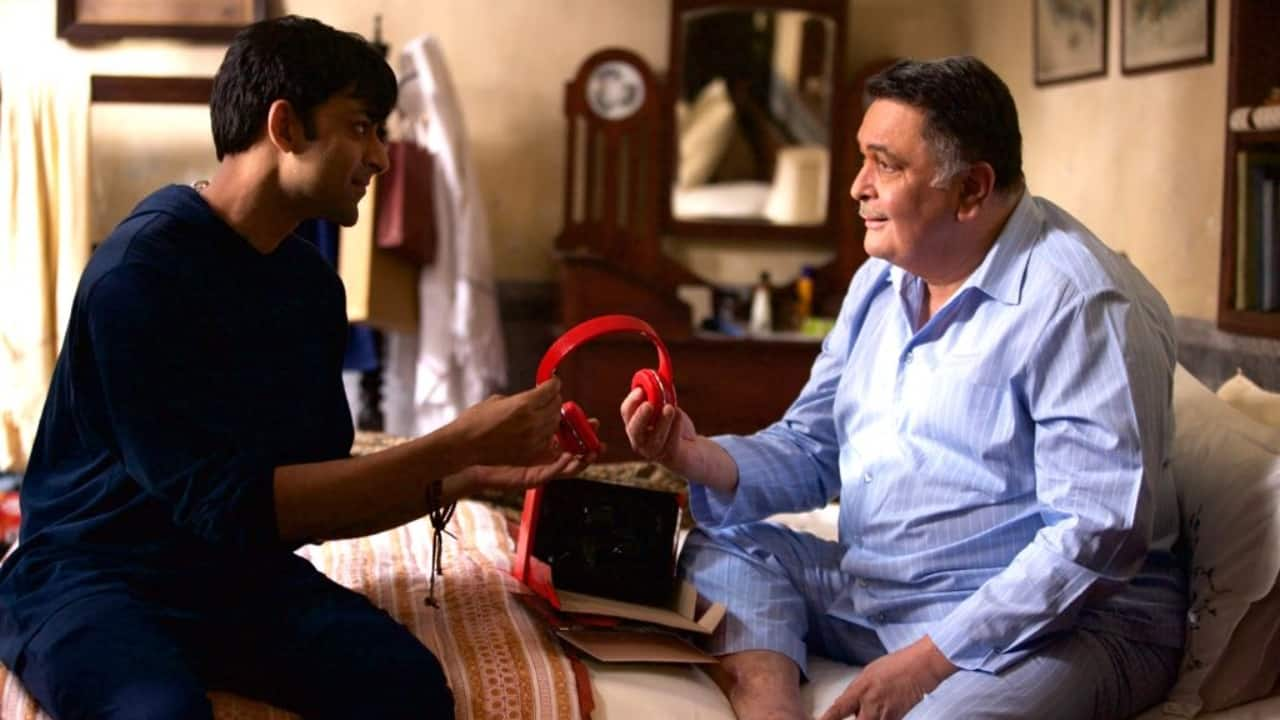In Leena Yadav’s Netflix film Rajma Chawal, young Kabir (Anirudh Tanwar) gets his father, Raj Mathur (Rishi Kapoor), a pair of headphones in an attempt to fix a fractious relationship.
[caption id=“attachment_4500683” align=“alignnone” width=“1280”]  A still from Rajma Chawal. Netflix[/caption]
Technology isn’t a mere peace-offering in Yadav’s film, it is in fact its second language – the first being emotions. A tale of father-son’s troubled relationship, Rajma Chawal went down without a whimper. Forget the absurd premise and some underwhelming performances, Yadav’s film puts technology smack in the centre of our changing world and asks the question – has tech become a rite of passage between generations?
Mathur suffers a financial slump and decides to move back to his family home in Delhi’s Chandni Chowk, hoping the old-world charm would warm up his relationship with his son.
But Kabir seeks open pastures and find his escape in his smartphone. “You spend so much time with it. Leave your phone,” the father shouts during a meal as the son is lost in virtual world.
Soon it is the father who turns to tech. Mathur and his friends try catfishing – they plot to seduce Kabir through a fake Facebook account of a woman.
A desperate but a telling ploy. Modern love or relationships are not beholden to meetings or face-to-face conversations. They play out as much, or more, in virtual world, second-guessing people behind the images and texts. It is a just a matter of time before this medium translates into a language.
And this is where the tech gap comes in. While the young would be all clued in and in sync with the latest developments but what about those ghosted by the new tech, ones who are a generation old or those who are not tech savvy?
The sight of technology stunning, sometimes even overwhelming, first-generation Indian users is common to every household and is just as comical in the film.
Though the film exaggerates the crossing-over to the point of deception, it does shine light on the how technology will define relationships.
Television series such as Black Mirror have offered a glimpse into our uneasy relationship with technology by examining its unintended consequences for society.
For families, smartphones, intelligent machines and such gadgets are a doubledged sword – they can estrange people, encroaching upon family time, but can also free them up.
For elders struggling to read a sentence, find a favourite song, or get to one place from the other, a smartphone can feel like the care and affection of a real person. Social media platforms allow them to connect with people and feel less lonely. Tech can’t replace the warmth of a human but an Uber can get them from one place to the other when they need it.
Manik Sharma writes on arts and culture, and cinema. He is based out of Delhi.


)
)
)
)
)
)
)
)
)



